A glimpse on the status quo of experiences with online meetings
Since I researched a lot in the theoretical background, I decided to make a short survey about the people’s experiences with online meetings. I got 36 answers from persons in the age of 18-40+ from different working fields (especially teachers) and also students. It was very interesting to see that most of the answers were nearly similar and that they fitted my personal assumptions I made beforehand. But let’s have a closer look at the survey and the answers.
The first two questions show key facts (age & touchpoint with online meetings) about the interviewees.
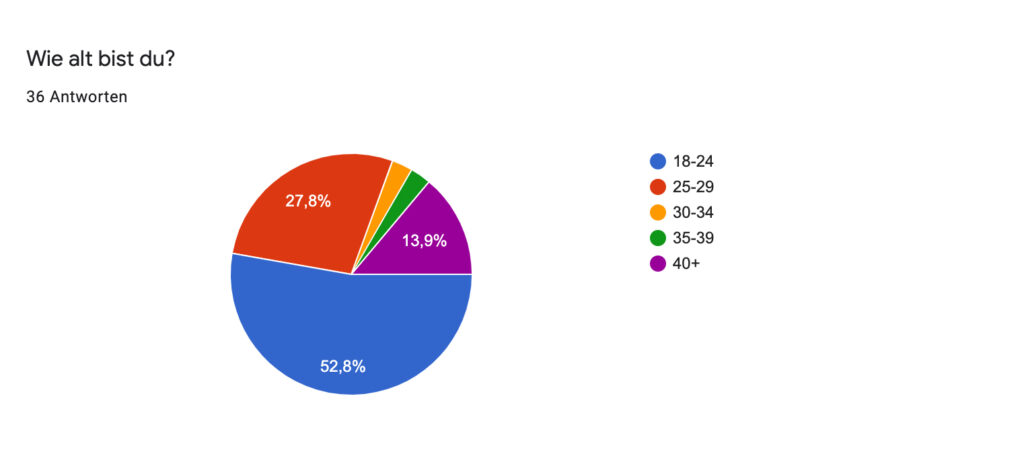
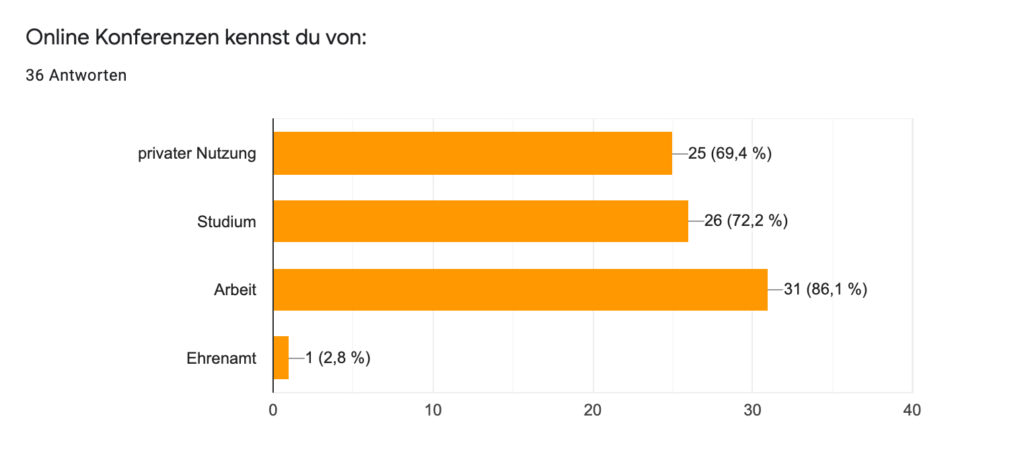
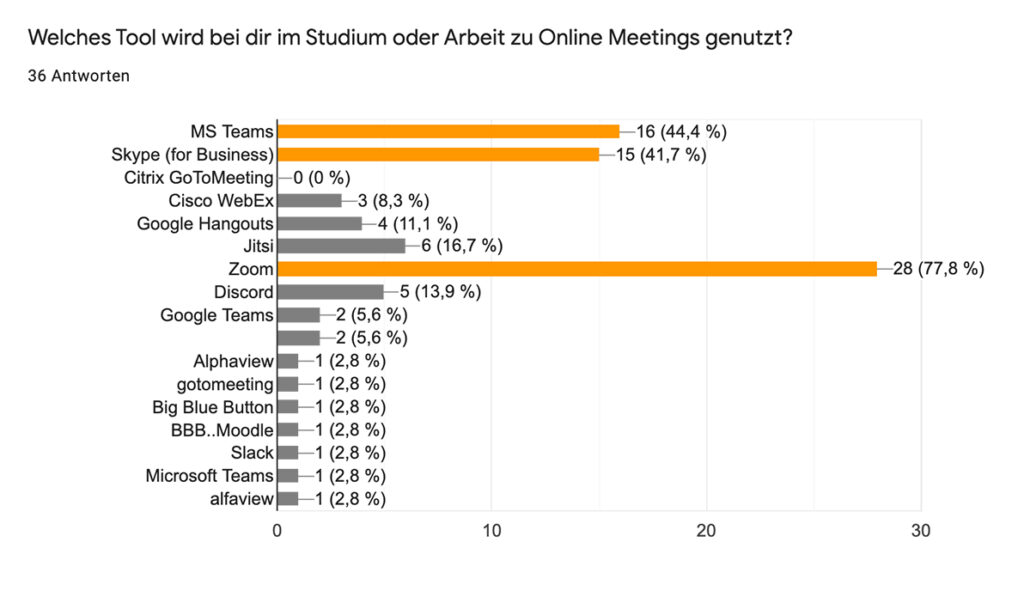
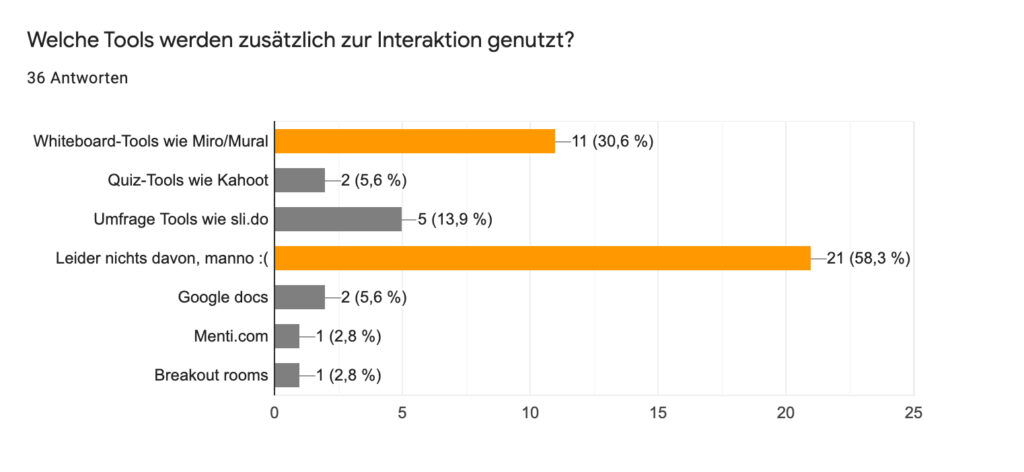
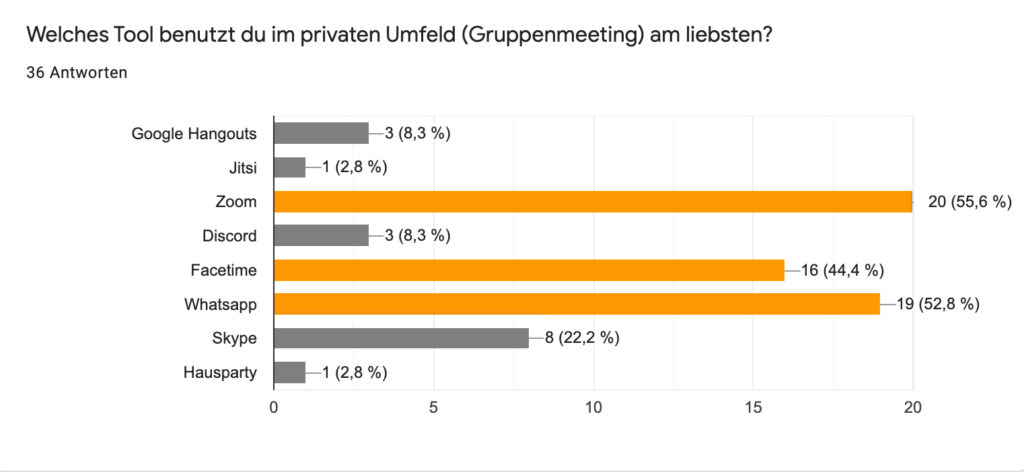
The last question about what is missing in online meetings was an open one so I got a range of answers. Because of their similarity I could sort them in 4 categories: Communication, body, technologies & environment related points.
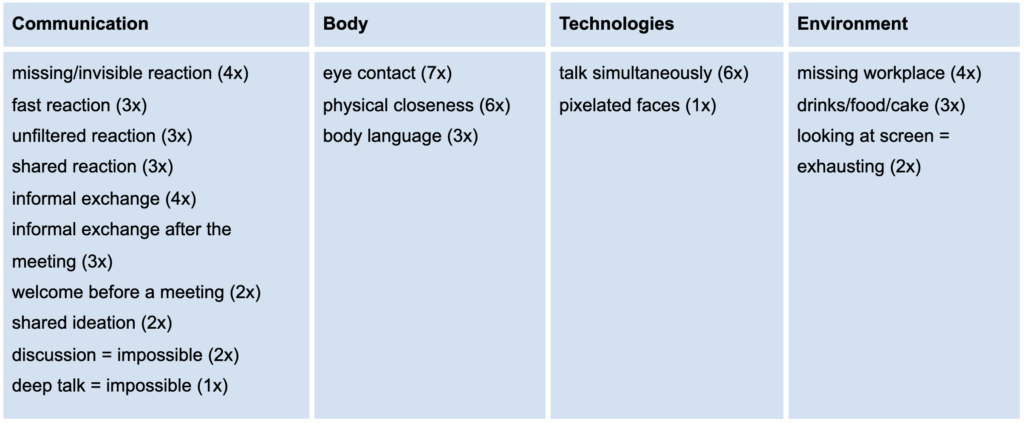
The table looks like the main issues come along with the communication but they are often related to each other (like reactions or exchange before & after a meeting). Furthermore the communication issues also depend on the technology point ‘talking simultaneously’. After summarising the answers I came to the conclusion that there are some key ‘pain points’ and also several factors that influence them. I made a quick overview to sort my thoughts about the main outcomes:
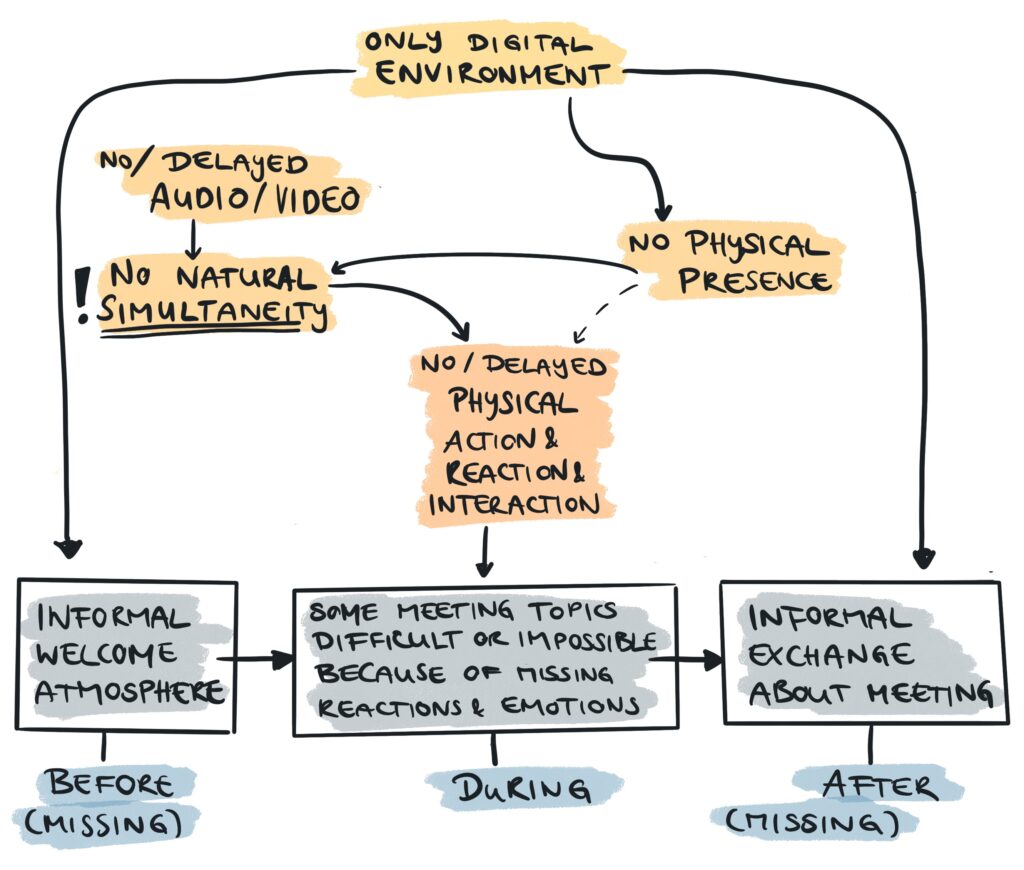
An important outcome I want to emphasise is the lack of simultaneity within online meetings. A lot of answers made clear that the interviewees especially missed the direct and spontaneous atmosphere of online meetings. Besides that the interviewees are not that often in touch with active interaction tools like collaborative whiteboard or life questionnaires which maybe could lead to a more direct and simultaneous meeting feeling. Another interesting thing is that the interviewees mentioned the ‘before’ and ‘after’ of an online meeting.This could have an interesting link to my findings on (virtual) spaces and I am looking forward to further research.
Key words: survey, computer-mediated communication, connectivity, cyberpsychology, digital social interaction, online meeting, remote communication media, telecommunication, verbal communication, virtual communication, web conferencing, web meeting